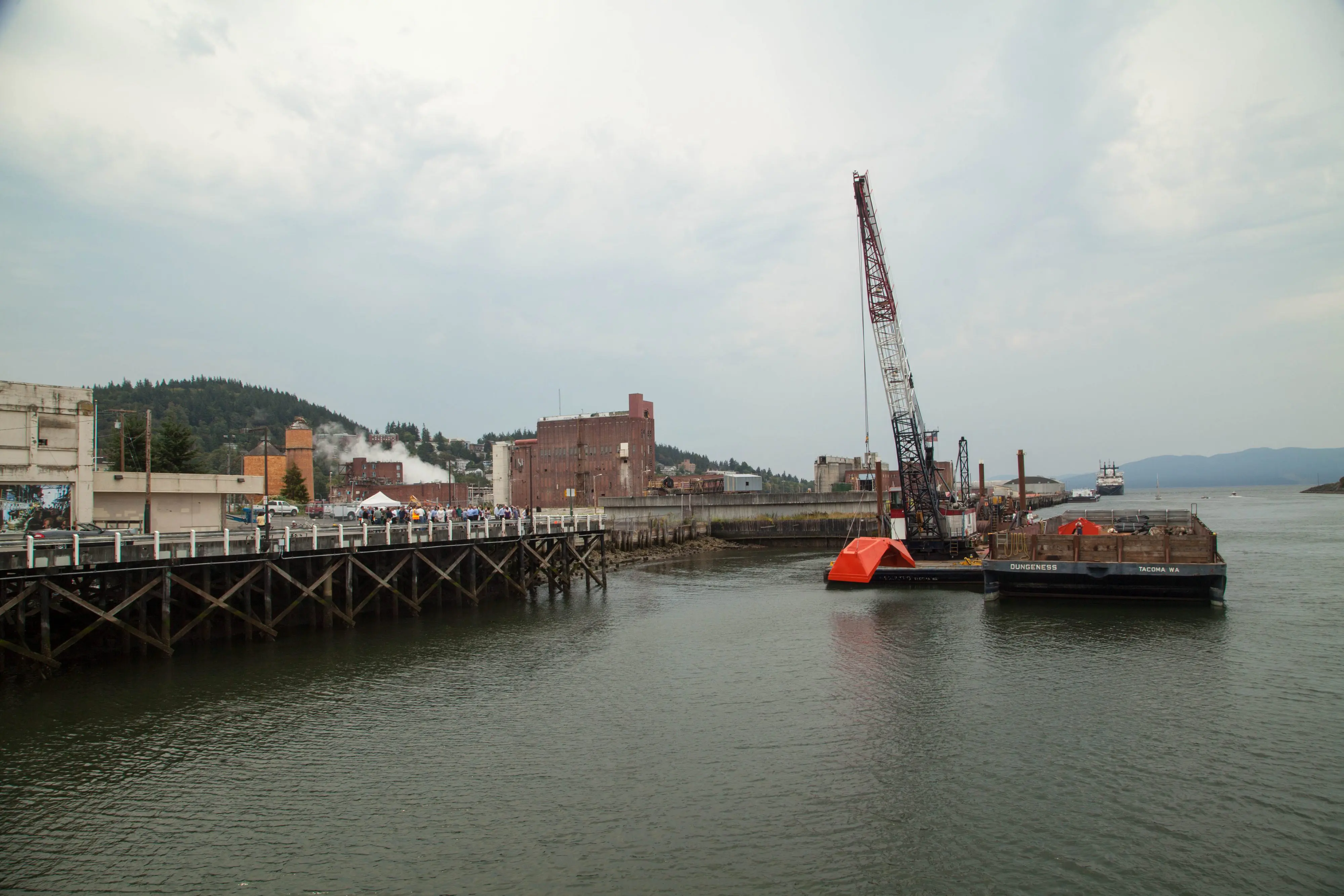Bellingham is at an exciting stage in our waterfront development. After decades of industrial use, investigations, and studies, we have begun major environmental cleanups. The first significant project, a $36 million dredge and cap in the Whatcom Waterway, began this summer, and plans continue to clean up the northern portion of the G-P site and the Cornwall Beach area in the next few years. But the State funds we are relying on for the rest of the work may no longer be there.
While the City of Bellingham and the Port of Bellingham are committed to cleaning up our contaminated sites, we need support from the State of Washington to do it. This is why we are supporting Governor Jay Inslee's budget proposal to issue $25.5 million in bonds to clean up contaminated sites.
This funding, managed by the Model Toxics Control Act (MTCA), supports projects vital to Whatcom County, including $6 million for a cleanup project at Fairhaven Shipyard that will help protect more than 100 working waterfront jobs, as well as a $3 million cleanup project at the RG Haley site that will support new public access to the city's waterfront. The Governor's budget proposal is currently in front of the State Legislature, and even though there are always competing priorities for limited State funding, clean land and clean water are of paramount concern to our health. Without State help through the MTCA program, these cleanup projects that protect human health and the environment, encourage vital public spaces, and support high-skill marine trades jobs are in jeopardy.
Funding declines
The goal of MTCA is to clean up all hazardous waste sites and prevent the creation of future hazards. Since the act passed in 1988, a lot of great work has been done — but thousands of hazardous waste sites remain. The tax is imposed on hazardous materials imported into the state, such as oil, at the rate of $7 per $1,000 value. Because of the recent lower prices of oil, however, it may be difficult to find funding for local projects in the years ahead. Bonding is needed to secure funding and support priority clean-up projects.
State grants to local governments are the best way to clean up hazardous waste sites. There is legacy contamination in every county of the state, and most of the industries responsible for creating the pollution no longer exist. The high cost of cleanup of legacy contamination is a major barrier to redevelopment. Cleanup grants to local governments are proven to return blighted properties to productive community use.
Locally, we have used MTCA funds to transform the vacant and contaminated Weldcraft Boatyard into a vibrant part of Bellingham's marine trades economy with more than 30 working waterfront jobs. Cleanup grants were also essential for transforming the Holly Street Landfill, located near Maritime Heritage Park and the adjacent fish hatchery, into a city center park with public access to the water. Salmon habitat was also restored. The transformation of 237 acres of contaminated and underutilized property on Bellingham's city center waterfront into a vibrant, mixed-use neighborhood will not be possible without state cleanup grants.
Supporting the environment, economy, community
Clean up efforts support a wide variety of environmental, economic, and community objectives. We need to ensure that it is safe to harvest seafood from Bellingham Bay or go to work on the waterfront. These projects protect human health and the environment and restore salmon habitat, as well as improve access to the water so the public can enjoy our world-class waterfront.
When it comes to supporting our local economy, cleanup grants to local governments are also some of the State's most powerful economic development tools. They return contaminated property into productive use, create jobs, stimulate private investment, and increase property values. Cleanup grants are matched by local governments, doubling the State's investment value, and the State estimates that every $1 of MTCA investment generates another $6 in local tax revenue and $32 in business revenue.
Our marine trades economy especially benefits from these cleanups. The maritime sector is a major contributor to the state's economy, producing 148,800 jobs and $30 billion in fiscal impact. Cleanups are needed in places like the Blaine marine industrial area and Fairhaven Shipyard to protect waterfront jobs, support expansions, and return underutilized property to productive use. Investing in these projects can rebuild dilapidated marine infrastructure, which protects the environment and benefits the water-dependent trades economy.
What we can do
We depend on state grant programs like MTCA to fulfill our obligations to our community to clean up and protect our environment. The City and Port are committed to cleaning up our environment, and the City has spent $6 million and the Port $50 million in the past decade towards these efforts. We're asking residents and businesses to call our legislators and ask them to support the Governor's proposal to bond cleanup projects. We must use MTCA revenues as the voters intended and fund cleanups for the benefit of the environment, the economy, and the community. Without MTCA funds, our cleanups will stall, our waterways and land will remain contaminated and marine trades work may go elsewhere.
Contact your legislators
Kelli Linville is mayor of Bellingham and Michael McAuley is Port of Bellingham commission president. This was published in the Bellingham Herald on Feb. 7, 2016 and is one of a series of monthly Civic Agenda reports The Bellingham Herald invited Mayor Linville to provide to share updates about City of Bellingham issues and projects. She invites citizens to contact her at 360-778-8100 or mayorsoffice@cob.org.

